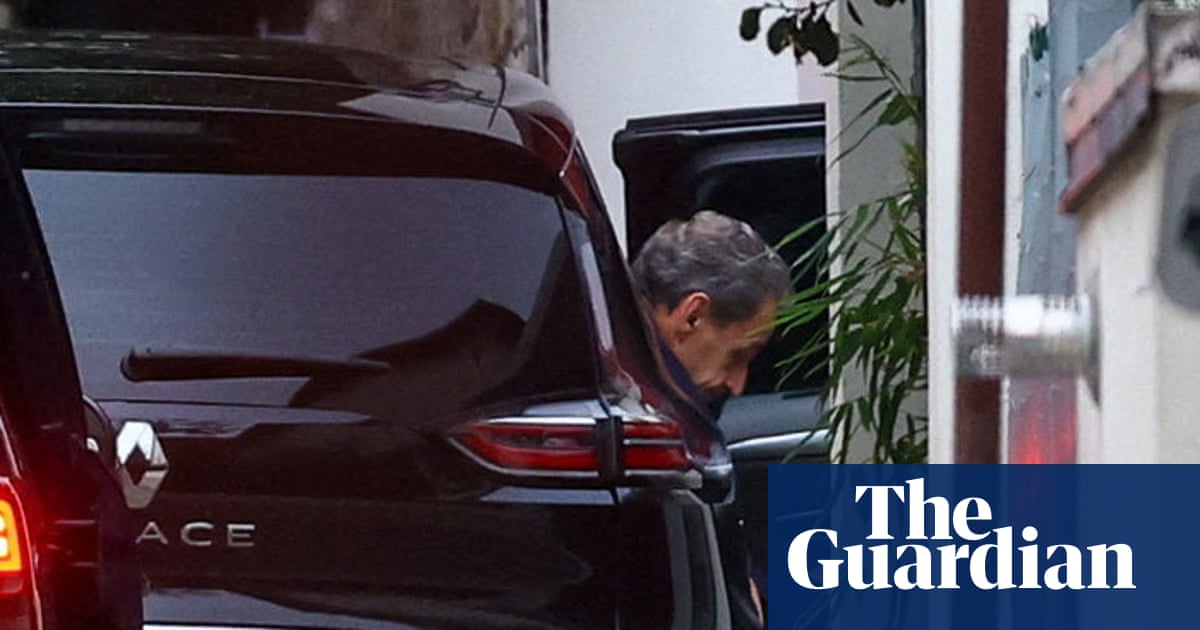Nicolas Sarkozy said he intends to “prove his innocence” after being released from prison while he appeals a conviction for criminal conspiracy over an alleged scheme to obtain campaign funds from Libya.
After 20 days behind bars at La Santé prison in Paris — an interval he described as “gruelling” and a “nightmare” — the former president left on Monday, accompanied by his wife, singer Carla Bruni-Sarkozy.
On social media the 70-year-old wrote: “The law has been applied. I will now prepare for an appeal. My energy is focused solely on proving my innocence. The truth will prevail.”
Sarkozy began serving a sentence on 21 October, after a Paris court handed him a five-year term for criminal conspiracy linked to efforts to secure funding for his 2007 presidential campaign from Muammar Gaddafi’s regime. He denies wrongdoing and has appealed; a retrial on appeal is due next spring. Judges had ordered him to serve the sentence while the appeals process continued, citing the “exceptional gravity” of the conviction.
A Paris appeals court on Monday granted his request for release. Under the conditions, Sarkozy is barred from contacting justice ministry officials, including justice minister Gérald Darmanin, whom he had previously mentored before rejoining Emmanuel Macron’s party in 2017. Darmanin visited him in prison last month — a move criticised by some magistrates as potentially undermining judicial independence. Sarkozy is also forbidden from speaking with others involved in the case and is banned from leaving France.
Appearing by video link to the court from prison, dressed in a navy suit and seated with his lawyers, Sarkozy praised prison staff as “exceptionally humane” and said their conduct had helped make the ordeal bearable. “I never had any idea or intention to ask Mr Gaddafi for any kind of financing … I will never confess to something I didn’t do … I never imagined that at 70 years of age, I’d be in prison. It’s an ordeal that has been imposed on me. I confess it’s hard, it’s very hard. It leaves a mark on any prisoner because it’s gruelling.”
He had been held in solitary confinement for security reasons in a roughly 9 sq metre individual cell with his own shower and toilet; two bodyguards occupied a neighbouring cell. The news weekly Le Point reported he ate mainly yoghurts in prison, fearing food could have been tampered with, and declined to cook although facilities were available.
Sarkozy’s lawyer, Christophe Ingrain, who visited daily, said the former president would be safer outside than inside prison, noting Sarkozy had faced death threats, heard screams at night and witnessed urgent interventions when other inmates self-harmed.
Sarkozy, who led France from 2007 to 2012, became the first former EU head of state and the first postwar French leader to serve time in prison. Bruno Retailleau, head of his party Les Républicains, said on social media that the release had been expected and praised Sarkozy’s courage and determination.
His social media account last week shared a video showing piles of letters, postcards and packages sent to him, some containing collages, a chocolate bar or a book, adding: “No letter will go unanswered. The end of the story has not yet been written.”
At trial, the public prosecutor accused Sarkozy of entering into a “Faustian pact of corruption with one of the most unspeakable dictators of the last 30 years” to obtain Libyan funding. Sarkozy denied participating in any criminal conspiracy to seek Libyan election financing.
He was acquitted at trial of three separate counts — corruption, misuse of Libyan public funds and illegal campaign financing — but the state prosecutor appealed those acquittals, meaning he will be retried on all counts, including criminal conspiracy, next year.
These Libya-related allegations were the most high-profile of several legal battles for Sarkozy. He has previously been convicted in two other cases and was stripped of the Légion d’honneur. In an earlier conviction for corruption and influence-peddling over attempts to obtain favours from a judge, he received a one-year jail term that he served under electronic tagging. He wore the ankle monitor for three months before being granted conditional release.


